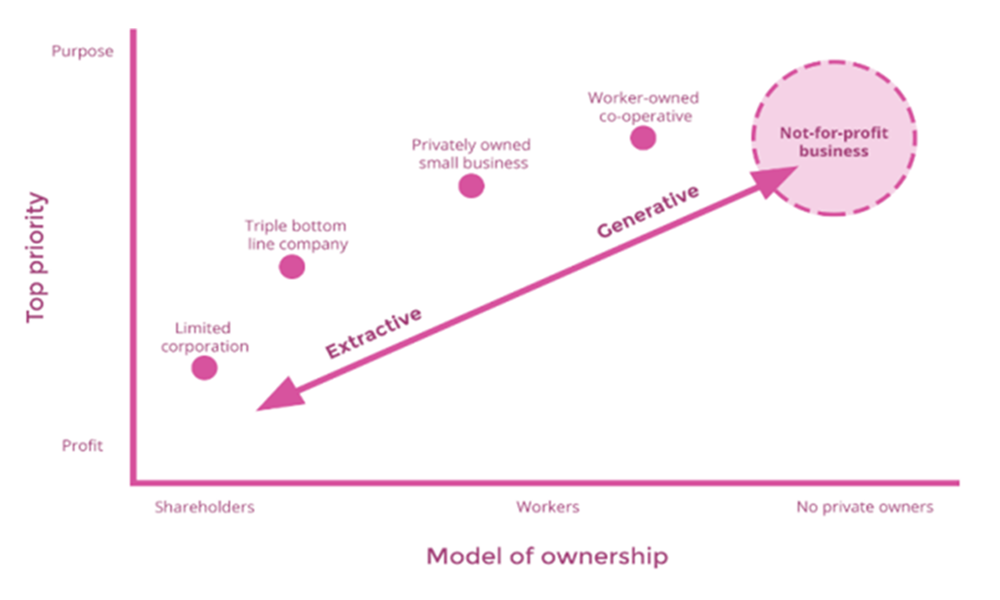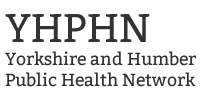Blogs
1. Shane Mullen & Debs Harkins, August 2023 - Inclusive and Wellbeing Economies
Yorkshire and Humber Directors of Public Health have identified 3 priority ambitions that have important impacts on the population’s health, each supported by an Advanced Practitioner Fellow, and sponsored by a Director of Public Health. This blog shares the work that Shane Mullen, one of these Fellows has been doing to develop a narrative and to support local public health teams to influence the development of inclusive wellbeing economies in their area. Debs Harkins, the DPH sponsor for inclusive wellbeing economies also reflects on how she has used the narrative to support an inclusive wellbeing economy in Calderdale.
Shane Mullen, ADPH Y&H Advanced Practitioner Fellow (Inclusive Wellbeing Economies)
What is it and why it matters
Right now, our economy is making people ill, its current configuration extracts wealth from communities. In too many cases people are treated as on demand, disposable inputs; a cost to be minimised in an economy that is exploitative.
Working on this area helps us tackle the causes of causes of health inequality and promotes, fairness and social justice for all.
To thrive, local economies need lots of generative organisations, including worker-owned businesses, community organisations, charities, social enterprises, locally rooted SMEs and municipal enterprises. These types of organisations allow the wealth they create to circulate around their local economies. Those with shared ownership structures – such as worker-owned co-operatives, mutuals and community businesses – have the added advantage of widening ownership of wealth even further, by passing profits directly on to workers, consumers or citizens.
Figure 2 Extractive / generative spectrum

Source CLES
Those that live in fairer societies that share wealth, are more likely to have good wellbeing. Health and wealth are two sides of the same coin.
We haven’t got here by accident; economies are designed by people and choices they make. We can make different choices in our local areas. Working towards an inclusive wellbeing economy means making these choices in favour of people first. Shifting the economy to work for people giving all security, safety, power, prosperity and health.
“An Inclusive Wellbeing Economy is one that serves the wellbeing of people and the planet, making life better for all.”
What we have done
Since the start of the fellowship the focus has been to work on the definition of inclusive wellbeing communities, what it means to public health and why it is a priority for the public health community.
It really has been a privilege to have the space to work on this topic. Like many I suspect the blow by blow, hour by hour working that the pandemic shaped for us, was a departure from our usual way of working. Focusing on inclusive wellbeing economies has given me space to think through, read and research a singular topic which has been incredibly fulfilling, and made me feel so fortunate to have had this chance.
Alongside the topic work, learning to be a Fellow has been fantastic. Quite quickly the three of us Fellow’s, myself, Dora Machaira and Catherine Ward formed a close peer group, all of this being new to the region and us. It has, and continues to be amazing to have such a supportive network.
Hearteningly there is an incredible amount of thinking and work that has tackled inclusive wellbeing economies, both Debs and Toni Williams introduced to me the fundamentals, and I fell down the rabbit hole not long after. The breadth and depth of insight, approaches and will for change from around the world is amazing. Being new to the subject, for the first few months I took the approach of becoming a simpler life form, the sponge. Trying to absorb as much of the thinking that had been done in this space. Attending conferences and workshops listening to leaders in the field discuss these issues, share their experience, as well as reaching out to Yorkshire and Humber colleagues who had begun this work in their areas.
Working on our Y+H definition, a clear initial complication of this work was sustainability; economies of the future must be sustainable, no planet, no people, no economy. Given I had a fellow, Fellow ( a little Fellow’s joke!) Catherine Ward working on this climate and sustainability, we decided early on to reference in this work the importance, and to sign post to Catherine’s work. The next challenge navigated the breadth of the word “Inclusive,” which after a few iterations, review of what others have used, and a session with Debs and Toni, we arrived at what is included in the narrative this blog introduces here.
The resources that support the narrative have been collated, themed, and structured around the five headings in the narrative and are available to all, who want to get started in this area, here.
You’ll find other things that I have worked on, such as What Works in Yorkshire and Humber, which has examples from across our region of how parts of this agenda are coming together. There are further resources taking a broader look of what is working on this topic from further afield.
Shane - ever an open door to talk about this area so feel free to get in touch shane.mullen@eastriding.gov.uk
Debs Harkins, Director of Public Health (Calderdale)
Reflections on putting it into practice
I joined Calderdale in the first Covid lockdown and was immediately immersed in the Covid response, without the opportunity to develop a knowledge of Calderdale’s communities and economy in the ways I usually would when starting a new job in a new place. It became apparent very quickly that many of unequal impacts of the pandemic in Calderdale were driven by economic factors. Not just the work that people do, but the way they are employed. I was surprised how many of the people putting themselves at risk so we could keep going (by transporting us, feeding us, caring for us and cleaning places that had to stay open), worked for themselves in the gig economy or were on zero hours contracts. Following the pandemic, it’s clear that these same people are impacted most by the cost of living crisis. Covid opened our eyes to the scale of the gig economy and also to its impact on people’s wellbeing. I think this research by Tavistock Relations really brings these issues to life: Working well: Delivering better health outcomes for hidden workers.
Being sponsor of the inclusive wellbeing economies aspiration has given me the opportunity to learn more about the relationship between the economy and the wellbeing of people and the planet. It’s helped me understand the potential for us to develop local economies where the wealth that is created is distributed more equally across communities, ultimately creating wellbeing as well as wealth.
You might wonder why public health teams are dabbling in economic development, but I hope the narrative we are launching through this blog, shows how significantly local economies impact on the health and wellbeing of local residents. Public health leaders in Councils and Combined Authorities have real opportunities to influence local economic strategies. Supporting local economic strategies to be better at creating health and wellbeing is absolutely our businesses!
In Calderdale I’m lucky to be a member of our Inclusive Economy Partnership as well as the Health and Wellbeing Board and the Calderdale Cares Board (the Calderdale place partnership of the West Yorkshire Integrated Care Board). The work of all of these partnerships influences our local economy. I’ve recently been trying to test how the narrative we have developed can help these partnerships think about health and wealth as two sides of the same coin.
We have been hearing a lot recently in the media, that economic inactivity has increased significantly over recent years and particularly since the pandemic, and that it is hampering economic growth. The Calderdale Cares partnership recently held a development session to explore these issues and consider its contribution to tackling economic inactivity and supporting the local economy. I used the inclusive wellbeing economy narrative to support this discussion and highlight that as well as people’s health being bad for the economy; the economy is bad for people’s health! This led to agreement to develop a Calderdale strategic approach to improving the health and wellbeing of the working age population.
We are currently reviewing our Inclusive Economy Strategy. To support this the Inclusive Economy Partnership recently had an in-depth discussion to explore the relationship between health and the economy as part of the review of the strategy. I was able to use some of the narrative to support my contribution. The outcome was agreement to hold a joint session between the Inclusive Economy Partnership and the Health and Wellbeing Board to inform the action we take together to develop an economy that is good for people’s wellbeing, where healthcare organisations are contributing to the local economy and where people are well enough to be ‘included’ and participate in the local economy.
It's really encouraging that the NHS is giving more prominence to its contribution to local economies. Many healthcare organisations are part of NHS Anchor Institution networks, giving opportunities for them to learn from each other and share good practice. Early learning from Calderdale (and other areas much further ahead) is that the magic happens when local NHS organisations are in the same room as local economic development specialist, training providers and businesses in Councils and Combined Authorities; exploring how they can contribute to local inclusive economy priorities. When times are tough, and capacity is limited, I hope participating in NHS Anchor Institution networks doesn’t replace this!
Debs
